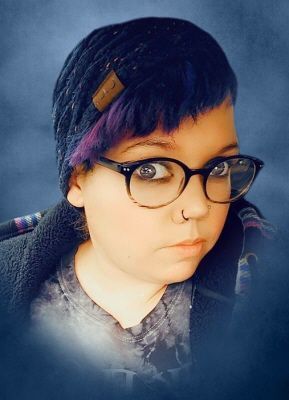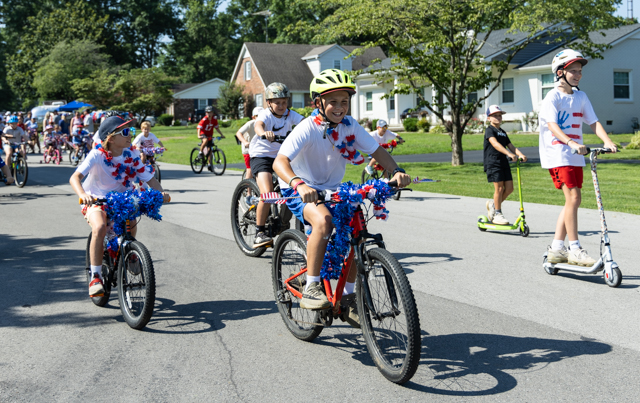Synthetic drug possession arrests up 305 percent in Bowling Green over last year
Published 8:17 am Wednesday, June 8, 2016
Bowling Green police have seen them asleep behind the wheels of moving vehicles, staggering along sidewalks, passed out in the snow and mumbling incoherently.
They are among the users of synthetic drugs called “spice” on the street and sold in packages marked as incense with names like Black Voodoo, Hallucination, Demon and many others. They are illegal to possess or sell in Kentucky but are available on the black market here, online and sold legally in other states.
From January to June 2, Bowling Green Police Department officers have arrested 73 people on possession charges. That number represents a 305 percent increase over the same time period last year, when 18 such arrests were made.
“Synthetics have been an ever-changing playing field, if you will,” Bowling Green-Warren County Drug Task Force Director Tommy Loving said. “When they first started they were being sold in some convenience stores and hookah lounges. Through enforcement efforts most of those sources were shut down and we saw a decrease in activity for a while.
“Now what we’re seeing is traditional drug trafficking in synthetics where there is a source of supply and street dealers.”
So far this year, police have encountered users who were driving while high on the substances, with many drivers asleep in traffic or at stop lights, police records show. One man was was arrested after driving his car down a city sidewalk and another while rolling the plant-like substance into a joint as he sat on the front stoop of a church building.
When asked, many of those users don’t know who they are or where they are, making them easy prey for violent criminals.
Some young users wind up in emergency rooms when their parents find them lying in various stages of consciousness, records show.
Because the drugs are sold as “incense,” their ingredients are often unknown to emergency medical personnel. That leaves paramedics to provide supportive care, which means treating symptoms as they arise, said Jim Williams, Medical Center EMS operations manager.
“It’s like a lot of other overdoses,” Williams said. “Most of the care is supportive. If they’re stable, they get transported and observed. If they are unstable, we treat whatever problems they have.
“It’s often not just the drug, it’s what events the drug causes,” he said, citing assaults, trauma, heart-related symptoms and breathing problems as just a few of the medical issues paramedics encounter when treating illicit synthetic drug users.
“The biggest danger with them, is there is no standard,” Williams said of the drugs.
The packaging and the substance inside may look like the same substance that a user has ingested in the past but could be – and often is – a completely different chemical, Loving and Williams said.
“It’s a chemical sprayed on a plant material or on some other material, and there’s certainly no quality control, and the formula of the drug is also ever changing,” Loving said.
That would explain why both police and emergency medical providers said they encounter users whose symptoms run the gamut from lethargic to psychotic episodes with extreme agitation, including everything from all bodily systems shutting down to all bodily systems on overdrive.
“We’re finding them at both ends of the spectrum, some very lethargic and others hyper and seemingly paranoid,” BGPD spokesman Officer Ronnie Ward said.
While the local statistics show a dramatic increase in the number of people arrested on possession charges year over year, what police don’t know is exactly where people here are buying their synthetics. An arrest citation written in April shows that investigators served a search warrant on a house on West 11th Avenue, where investigators recovered “a large amount of synthetic marijuana.” Ward declined to comment on specifics about that search.
“We’re not finding out much information as to exactly where they’re purchasing the synthetic drugs,” Ward said.
At one time, before they were outlawed in Kentucky, the drugs were cheap and easy to find in markets and hookah lounges. The drugs, even though illegal, still remain a cheap alternative to other street drugs, Ward said.
“Our two squeaky wheels coming into the community are crystal meth and synthetics, and we are actively pursuing investigations into trafficking of those drugs,” Loving said.
“The legislature gave us a new tool for the tool box in fighting this drug. Prior to this spring, the first offense for trafficking in this dangerous drug was a Class A misdemeanor,” Loving said. “The legislature has changed it now to make it a Class D felony on the first offense and a Class C felony for the second offense. It also allows for asset forfeiture of the drug proceeds involved or gained from the trafficking.
“That was an important step, As a Class A misdemeanor they may have gotten a few days in jail and pay a minimum fine and be right back in business. A few years in prison will at least get them out of our community for a longer period of time. The forfeiture also allows us to hit them where it hurts in their pocketbook where they acquire money and goods through their illegal trafficking.”
— Follow Assistant City Editor Deborah Highland on Twitter @BGDNCrimebeat or visit bgdailynews.com.






